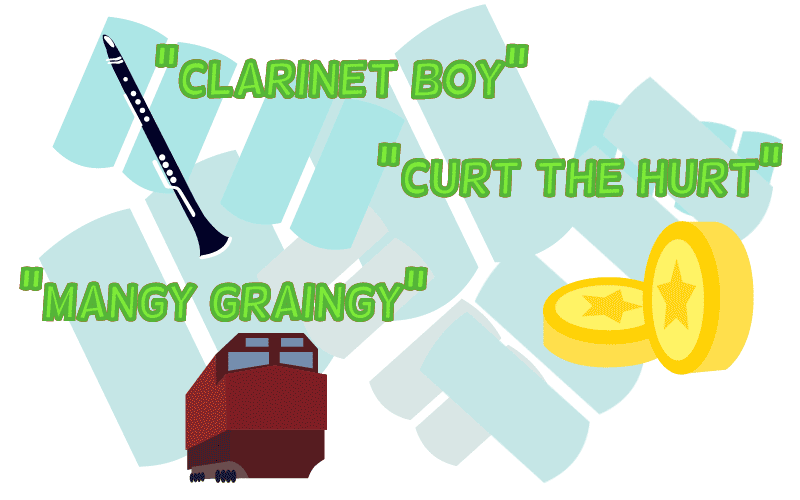At 44, I left my partner of a decade and became single again. In the year of slow healing that followed, I was haunted by images from the past. Not the immediate past, not the life I had just departed, but more distant relations. I thought of the park ranger I lived with on Cape Cod. I thought of the aptly titled Dean of Student Affairs, whom I met at the London college where I spent my freshman year. Most often I found myself returning to the Boston apartments where I spent my 20s, a time charged with restless sexuality and a self-defeating need to find the perfect mate. The images are of young men, best remembered by the nicknames bestowed by my friends.
“Washboard” was an anomaly in the mid-1980s when sculpted abs were still a rarity. We met watching lightweight porn in the basement bar at Paradise in Cambridge, and spent the night at my tiny Beacon Hill apartment, with its sloping floors and a bedroom alcove set off by mismatched glass doors. The post-coital discussion of Henry James ignited fantasies of a lifetime together. A week later, on a romantic stroll along the Esplanade, Washboard said, “You should start working out.” Admiring his musculature but not respectful of the time it took to achieve, I innocently declared that I had better things to do.
There were even shorter affairs, some lasting a single night. There was the lanky artist who worked in the gallery downstairs from the offices of the Handel & Haydn Society, where I took a clerical job after graduation. He invited me to his live-in studio, where he explained the theory behind his red-streaked, large-canvas abstractions. His bed, built into the walls like something in a colonial farmstead, offered a low ceiling where legs and arms could be braced in a breathless free-for-all. But it was in the afterglow, when he returned from the kitchen with Häagen-Dazs vanilla and fresh blueberries, that he showed his real skill.
The better men are at their best in these moments, padding back from the bathroom to fall against the pillows and talk in low voices. This is the time of greatest intimacy, more so when it is acknowledged that a one-night stand is nearing its end and that there are no undue expectations. It’s the quiet denouement to a comic-drama that began with a glance just hours earlier. The key ingredient, the beacon that draws me personally, is humor — that gleam in the eye, the mutual acknowledgment that sex is a ridiculous act and that we’re about to have a ridiculously good time.
My friends seldom heard about the one-night stands and couldn’t name them as they could the men I dated. They knew “Clarinet Boy,” a young musician with an enormous penis who expressed himself in a constant and annoying whine. There was “Curt the Hurt,” who brought things to an end when he left a trail of porn-arcade tokens across my bedroom floor. I became obsessed with artist “Mangy Graingy” when we argued about Tolstoy in the club car on the train from New York and even learned a bit about trompe l’oeil before he retreated from my overweening attention.

AIDS was news then. In the months between recognizing its deadly power and choosing to be tested, I felt like a lethal weapon. One young man stretched the dark length of his body beneath me and wrapped his legs around my back. We drew our breath together in long kisses. “Come on,” he said, but that moment of ultimate connection would never occur. I had better luck, or a deeper commitment, to “Lawrence of Cambridge.”
I can still see the golden hairs that lay like a cloud over the skin of Larry’s insanely sexy forearms. On our first night together, in a post-piano-bar blur, I refused intercourse until we had been tested. Two weeks later, with mutually negative results, we plowed forward without restraint.
Larry is one of those guys with whom it should have worked. I was working in the theater; he was composing song cycles at Harvard. Unfortunately, he was even less mature than I. We spent a day driving the late-autumn coast while he detailed the reasons that I would eventually leave him. By the time we got home, he had convinced himself that we might as well give up, and so he became “Lawrence of Cambridge, The Man Who Broke Up With Himself.”
He called a week before leaving for a teaching job in Santa Fe, and suggested that we meet at a Harvard Square bar. He appeared newly handsome, simultaneously centered and excited about his western adventure. We shared a beer and chatted about the old days.
I always hoped that our paths would cross again. I imagined rounding a corner and seeing him walk toward me, or spotting him across a theater lobby in New York. Maybe he would have grown up, maybe I could find pleasure in his idiosyncrasies.
He was the first of my exes that I Googled following my mid-40s break-up. I had retreated from the vast modern home that I shared in the DC suburbs and had settled in a cozy English basement on Capitol Hill. Sitting at a window that looked out on a tiny garden and the brick sidewalks beyond, I let my laptop lead me through a series of articles that recorded Larry’s minor musical successes and culminated in the news that he had died of AIDS in 1996.
If Larry had the arms, Don had the ass, and I can only hope that gravity hasn’t been too cruel. We met during our senior year in college before sex was scary. I was working as the stage doorman at the Boston Opera House. He was a dresser to the B-level stars who performed for Maestro Sarah Caldwell in her twilight years. While his charges strained through their arias onstage, Don would stop by to flirt. I fell for his wide, long-lashed eyes and cutting sarcasm. When he came home with me on a frigid New England night, he insisted that he needed a shower so I was waiting when he came to bed; two young men sliding into each other’s arms, never dreaming that someday they’d have hair on their shoulders.
I spent most of my small income on a studio apartment that guaranteed solitude, but Don shared a roach-infested flat in the South End with a Pillsbury doughboy who had a serious interest in sadomasochism. Glancing through his bedroom door, which was always open, we’d find the latest trick shivering naked on the floor while his master slept snug on the mattress above.
A web search provided nothing on Don but, while sorting through boxes of old files, I came upon a sheaf of letters scrawled on the backs of summer-stock wardrobe reports. I had spent the summer of 1983 in London, writing a bad children’s novel, while Don worked at a tiny theater in Bar Harbor. His letters are sweet, with quick insights on his colleagues and winking allusions to our sex life.
We broke up that autumn. Newly traveled, with my horizons broadened, I was bored by Don’s superficial interest in clothes and appearance, and left him for a Rodeo Drive hairdresser whom I met in San Francisco, where he was touring with the wig crew for La Cage Aux Folles. Dale and I had sexual chemistry that was hard to beat. We spent our afternoons bouncing off the walls of his furnished apartment until he went to the theater and I headed back to my parent’s East Bay home. Upon Dale’s return to West Hollywood and mine to Boston, I started flying out for long weekends, descending into a foreign world of throw pillows, floral arrangements, and rich women with tight skin.
At the height of our affair, I spent an afternoon on the edge of a bathtub, feeding lines from Knot’s Landing to Joan Van Ark while Dale touched up her roots. That spring, in spite of my friends’ incessant singing of the Chip & Dale theme song, I purchased a one-way ticket to Los Angeles, but changed my mind at the last minute, when Dale said, “Make sure you’re not doing this because of us. You have to do it because you want to live in L.A.”
Two decades later, my online search brought up the estate sale of a “Hollywood Hairdresser’s Movie Memorabilia.” Dale was in the final stages of Alzheimer’s. His estate, with no heirs, was being sold by his executors.
In my mid-40s and newly liberated from a relationship in which my partner and I shared his best interests as our top priority, I knew that I didn’t want to end like Dale. I wanted an heir, a partner or a child, who would walk the rooms of our home, feeling my absence when I was gone. More important, I wanted the relationship that would precede that event.
The thought led me to the last of my searches, this time for the iconic figure who haunts me most when I return to my Boston memories, a man known to my friends back then as “The Parson.” He knew how to listen. He valued both emotional and intellectual depth. And it didn’t hurt that his body rivaled Washboard’s, with large, encircling arms that kept me warm at night.
We met at the Brattle Theatre in Cambridge during an evening of short films that included a cinematic self-portrait in which a man flushed out the suppurated boils on his buttocks. At intermission I was ready to walk but a handsome, tall and bearded man was sitting on the theater steps, enjoying the night air before returning inside. We cruised, chatted, and he convinced me to stay. When he raised his hand during the Q&A session, I sank into my seat, but his question was insightful, even challenging.
We went on dates, walked the beach on a wintry day, shared lazy mornings. There was no drama, and he seemed to really like me, so I stopped returning his calls.
I thought about The Parson often. As with Lawrence of Cambridge, I wondered what might have been. What if I had been older when I met him, or more mature?

A quick web search delivered the bio of an economics professor, and a picture reminiscent of the man I’d slept beside. The nose was especially familiar, prominent in a handsome way. I dropped an email with the heading “Shot In The Dark,” described our first meeting, and waited. The reply came in five minutes.
An exchange of emails led to a phone call and a half-hour conversation. I reminded him of the backache I got from his futon, to which he responded, “Still bitching.” To my vague memory of our trip to the beach, he added, “Plum Island!” He remembered little about our break-up but had strong memories of our time in bed and worried about what that said about him.
A week later, he was sitting across from me at my favorite coffee house on Capitol Hill. In town for 24 hours to testify before Congress, he stopped in for a quick chat, wearing a starched white shirt and dress slacks — bearded, about 6 foot 13, still broad of beam and bright of eye. Our short chat became a lengthy discussion of religion, theater, politics, global warming, partners, and children. I learned about his daughter and husband and confessed that I often wondered what might have happened if I’d been a little wiser in my youth.
“Ah,” The Parson said. “That’s the parallel universe of ‘what if.’ You can’t live there.” He’s wrong, of course. I’d been living there quite happily. But when we parted on the street, he for his appointment at the Capitol and I for a stroll back home, I felt the gentle shift from “What if?” to “What now?”•




